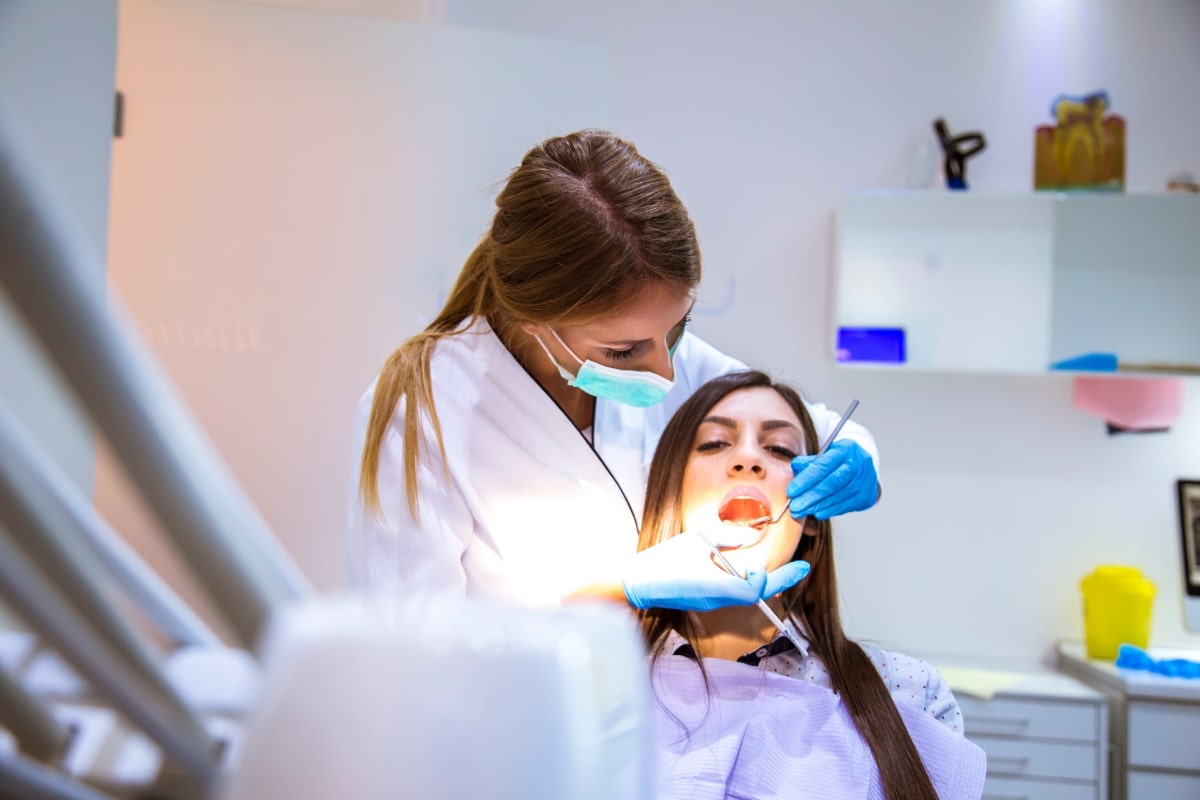4801 Southern Hills Dr, Sioux City, IA 51106, USA

If you have Hypothyroidism, you may wonder how it will affect your orthodontic treatment. While Hypothyroidism can complicate things, there are ways to manage it so you can still get the smile you’ve always wanted. Here’s what you need to know about how Hypothyroidism and orthodontics can work together.
The Impact Of Hypothyroidism On Orthodontic Treatment
If you have Hypothyroidism, you may wonder how it will affect your orthodontic treatment. While Hypothyroidism can complicate things, there are ways to manage it so that you can still get the smile you’ve always wanted. Here’s what you need to know about how Hypothyroidism and orthodontics can work together.
Hypothyroidism is often misunderstood as a medical condition that can have many effects on the body. While it most visibly causes fatigue, changes in weight, and dry skin, it can also affect many areas of your health, including preventing orthodontic treatment. In some cases, Hypothyroidism can slow down the formation of new bone fibers connecting into teeth, meaning that braces or other orthodontic treatments are less likely to take effect because of decreased movement in the teeth.
Furthermore, the gum tissue around teeth may be thinned due to the condition, reducing their stability and making corrections more difficult – if not impossible – to achieve without intensive and potentially dangerous corrective procedures such as laser surgery or extraction. To ensure that Hypothyroidism doesn’t interfere with any upcoming orthodontic treatments, always inform your healthcare provider as soon as possible so they can assess your condition.
They will also inform you what additional steps should be taken and whether or not to proceed further. And for those who already have braces or an aligner series, keeping thyroid hormone levels close to healthy ranges could ensure that treatment progresses unimpeded by this common but subtly insidious medical condition—knowing more about how Hypothyroidism affects your orthodontics is essential for those seeking perfect alignment of their smile with minimal hassle!
Adjust Your Treatment Accordingly
For people with Hypothyroidism, inform orthodontists before any treatment begins. This is because the condition can affect teeth and jaw development, meaning conventional braces or aligners may not be the best option for achieving straight teeth.
Instead, it may be better to use a combination of braces and orthopedic appliances over a longer period – and this type of treatment should only occur under close medical supervision. Discuss any alternative options with your doctor, such as temporary or removable appliances that can help patients manage malocclusions without the long-term use of traditional methods. Ultimately, by working with an orthodontist who understands the condition, individuals can create a tailored plan that fits their needs while providing safe and reliable results. Proper communication between patient and provider can achieve complete dental health despite Hypothyroidism.
Inform Your Orthodontist So They Can Adjust Your Treatment Accordingly
For people with Hypothyroidism, inform orthodontists before any treatment begins. This is because the condition can affect teeth and jaw development, meaning conventional braces or aligners may not be the best option for achieving straight teeth. Instead, it may be better to use a combination of braces and orthopedic appliances over a longer period – and this type of treatment should only occur under close medical supervision.
Discuss any alternative options with your doctor, such as temporary or removable appliances that can help patients manage malocclusions without the long-term use of traditional methods. Ultimately, by working with an orthodontist who understands the condition, individuals can create a tailored plan that fits their needs while providing safe and reliable results. Proper communication between patient and provider can achieve complete dental health despite Hypothyroidism.
There are a few things that can happen if you have Hypothyroidism and don’t tell your orthodontists, such as longer treatment time, more frequent appointments, and a higher risk for complications.
Hypothyroidism is a commonly diagnosed condition that impairs the body’s ability to use thyroid hormones properly. While the symptoms can vary from person to person, most individuals experience fatigue, joint pain, and weight gain. As such, it is important for orthodontic patients with Hypothyroidism to discuss their condition with their orthodontist.
With this knowledge, an orthodontist could know how Hypothyroidism may affect treatment and result in longer treatment times, more frequent appointments, or complications. For example, untreated Hypothyroidism affects how quickly teeth move and may require additional braces adjustments or lengthened retainers wear time.
Additionally, patients with Hypothyroidism are more likely to experience gingival inflammation and poorly healing soft tissues, often caused by hormonal imbalances and poor nutrition. As a result of not being aware of any underlying health issues that can increase patient risk factors, higher levels of supragingival deposits may occur due to plaque retention or gingival recession. For these reasons and more, patients must let their orthodontists know if they have Hypothyroidism so they can receive safe and efficient treatments while avoiding potential side effects or complications. Patients ensure the best possible care outcomes by informing their doctor of any conditions they have that could impact treatment outcomes or safety. Overall, telling an orthodontist about any underlying medical conditions is important for successful treatment and a healthier smile!
Managing Other Underlying Conditions
Managing any underlying medical condition is an important factor in successful and safe orthodontic treatment. If you have Hypothyroidism, it’s important to inform your orthodontist beforehand. This allows them to incorporate appropriate measures into your treatment plan, such as routine evaluation of TSH levels and management of the dose of thyroid replacement hormones if needed.
Your orthodontic treatment may be unnecessarily longer than expected without the knowledge of existing conditions to provide personalized care. You could be at a higher risk for potential complications during and after the process. In addition, proper assessment of thyroid levels can help optimize the efficacy of therapy throughout your treatment, making it easier for the dentist or articulator to shape the root surface properly, thus preventing soft tissue recession or erosion, which could lead to gingival inflammation or tissue damage if untreated.
By informing your orthodontist about any existing medical conditions before starting treatment, you can ensure that you and your doctor are better prepared to handle any problems during care. Furthermore, this allows you more freedom with scheduling appointments since frequent visits may not be necessary due to careful monitoring of symptoms throughout treatment. It is wise to disclose any relevant information about health conditions before undergoing an orthodontic process for optimal results with minimal risks.
Hypothyroidism Can Slow Dental Healing
Hypothyroidism can slow down dental healing and put you at risk for post-treatment insufficiency problems like TMJ issues and gum disease, which the strain of braces or other treatments can exacerbate. Orthodontists are well aware that Hypothyroidism needs special consideration when it comes to treatment, and they’ll work around these constraints so you get the care you need without compromising results. Informing them of your condition is essential to get the most out of your orthodontic experience!
Hypothyroidism can cause various symptoms that may affect how the treatment progresses. These symptoms can include dry skin, fatigue, and an inability to gain or lose weight. If left untreated, these conditions could seriously impact the success of your orthodontic treatment. Your orthodontist may need to make adjustments to ensure the best possible outcome from your treatment. For example, depending on your situation, they might recommend custom-made brackets or clear aligners.
In addition, your dentist needs to understand your condition because Hypothyroidism can slow down dental healing and put you at risk for post-treatment insufficiency problems like TMJ issues, which the strain of braces or other treatments can exacerbate. Orthodontists are well aware that Hypothyroidism needs special consideration when it comes to treatment, and they’ll work around these constraints so you get the care you need without compromising results. Informing them of your condition is essential to get the most out of your orthodontic experience!
At our dental clinic, we offer orthodontic treatments that are custom-tailored to each patient’s needs. So if you’re looking for an experienced orthodontist in Sioux City, look no further than our clinic!




